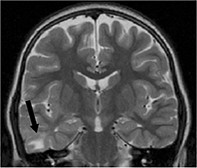Peer Reviewed
Feature Article Neurology
Epilepsy in childhood and adolescence
Abstract
About two-thirds of children and adolescents with epilepsy respond to treatment with anticonvulsants, and more than half will outgrow their epilepsy.
Key Points
- Epilepsy is a group of disorders associated with recurrent unprovoked seizures.
- An EEG is recommended following a first afebrile single seizure but imaging is not required in all children with epilepsy.
- Anticonvulsant medications are usually commenced after two or more unprovoked afebrile seizures. Sodium valproate is recommended for generalised epilepsy and carbamazepine or sodium valproate for focal epilepsy.
- Childhood epilepsy generally has a good prognosis, with around two-thirds of patients responding to treatment and more than half ultimately ‘outgrowing’ their epilepsy.
- Surgery offers the best chance of cure in the 20 to 30% of children who have medically refractory epilepsy.
Purchase the PDF version of this article
Already a subscriber? Login here.

